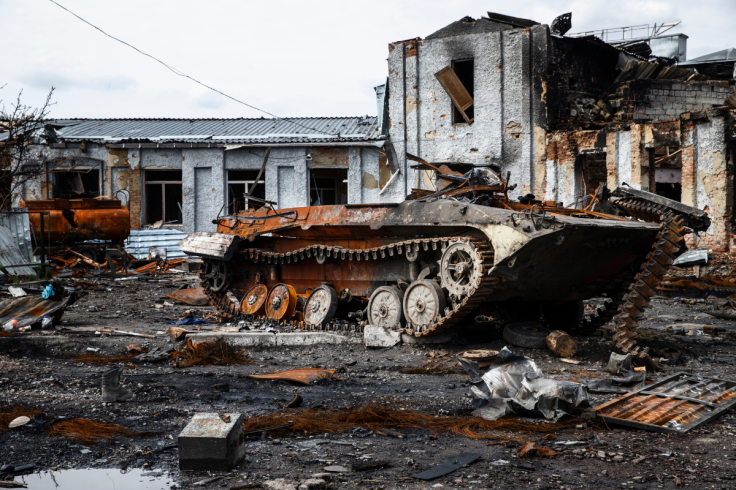Trump's Ukraine Plan Hands Moscow the Keys to Kyiv's Defences
Proposal undermines Ukraine's sovereignty

President Donald Trump has unveiled a 28-point peace framework for Ukraine that mandates the cession of the Donetsk region and permanently rules out Nato membership for Kyiv. The proposal, drafted without Ukrainian or European participation, has prompted warnings from defence analysts that the terms would dismantle Ukraine's strategic fortifications while offering Moscow significant political and economic rehabilitation.
Territorial Concessions and Military Limits
Under the proposed terms, Russian control over Kherson and Zaporizhzhia would be frozen, while Ukraine would be compelled to abandon the Donetsk province. Analysts note this concession would hand Russia territory it has failed to capture in more than a decade of fighting. Strategic concerns focus on Donetsk, which hosts Ukraine's entrenched 'fortress belt', a defensive line that has long obstructed Russian advances. Abandoning these positions would open a direct path to Kyiv should Moscow resume its offensive.
Trump's proposal also requires Ukraine to reduce its armed forces to 600,000 troops, down from the current estimated 800,000 to 850,000. No similar restrictions are placed on Russia, a disparity that experts argue leaves Ukraine weakened while its adversary retains full military capacity.
Political and Symbolic Concessions
The plan includes provisions that reflect narratives often employed by the Kremlin. It demands that Ukraine renounce all 'Nazi ideology' and hold elections within 100 days of a ceasefire, despite no parallel requirement for Russia to conduct democratic reforms. Critics argue that this framing legitimises Moscow's propaganda, which has sought to portray Ukraine's government as extremist.
While the plan proclaims that Ukraine's sovereignty, observers warn that its terms undermine that very principle. By treating the conflict as a territorial dispute rather than a struggle for democratic survival, the proposal risks validating President Vladimir Putin's broader aim of extinguishing Ukraine's independence.
Security Guarantees and NATO Exclusion
The plan promises Ukraine 'reliable security guarantees' and a 'decisive coordinated military response' if Russia resumes its invasion. However, the specifics of enforcement remain vague. Ukraine would be denied NATO membership, and NATO troops would be barred from stationing on its soil, precluding the reassurance force Kyiv had hoped for from Britain and France.
A side agreement reportedly offers NATO-style protection, declaring that a sustained Russian attack would be treated as a threat to transatlantic security. Yet the effectiveness of this guarantee depends on political will. NATO leaders, including Trump, have so far avoided direct military confrontation with Russia for fear of nuclear escalation.
European leaders have long insisted on a US backstop to any peacekeeping force, but Trump's plan reportedly offers only intelligence and logistical support, not direct military assistance. Such limited commitments are unlikely to deter Moscow.
Sanctions and Amnesty
The proposal also advocates for the easing of sanctions on Russia and readmitting it to the Group of Eight, easing the path for Putin to rebuild his military. Additionally, it promises amnesty for Russian forces accused of atrocities in Ukraine. The International Criminal Court (ICC) has already charged commanders for attacks on civilian infrastructure and indicted Putin for the abduction of Ukrainian children. Amnesty would undermine accountability and risk encouraging further war crimes.
In the coming days, consultations with our partners will take place on the steps needed to end the war. Our representatives know how to defend Ukraine’s national interests and exactly what must be done to prevent Russia from launching a third invasion, another strike against… pic.twitter.com/O7pR87SHTe
— Volodymyr Zelenskyy / Володимир Зеленський (@ZelenskyyUa) November 22, 2025
Ukraine's Response
President Volodymyr Zelenskyy has cautiously described the plan as a 'vision' rather than a final offer. Dependent on continued US arms sales, he has signalled willingness to negotiate but remains wary of its flaws. Observers argue that the plan requires major revisions to provide genuine security and preserve Ukraine's sovereignty.
The day after the plan was unveiled, a Russian glide bomb struck an apartment in southern Ukraine, killing five people and injuring 10. For critics, this tragic incident underscores the dangers of concessions that embolden Moscow rather than restrain it.
© Copyright IBTimes 2025. All rights reserved.




















